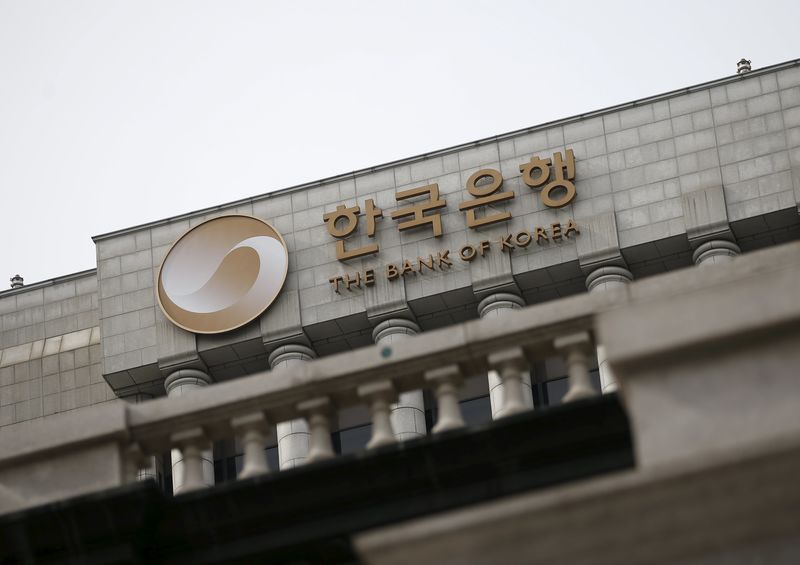By Christine Kim and Choonsik Yoo
SEOUL (Reuters) - South Korea's central bank kept its policy on hold on Thursday and its chief suggested he was not ready to ease policy soon, dampening bond futures prices and bolstering the won currency.
The Bank of Korea's monetary policy committee held the policy rate <KROCRT=ECI> steady at record-low 1.50 percent for a ninth consecutive month. One of the seven members voted for a 25 basis-point cut, as he did last month.
"We will have to see what oil prices will be like going forward, but they have come up considerably and U.S. economic indicators are showing upbeat trends," Governor Lee Ju-yeol told reporters.
"I believe this will be positive for the global economy, improve export conditions, and also help in stabilizing global markets," he said.
Lee noted that upside and downside risks to the economy appeared to be balanced.
The won <KRW=> rose as much as 0.8 percent against the dollar as Lee sounded less dovish on future policy than many traders had expected. Bond futures fell, with the March contract on three-year treasury bonds down 0.16 points.
The won's rally continued even after North Korea added to existing tensions between the two Koreas saying on Thursday it would liquidate South Korean assets left in the North.
"There's no sign of the economic conditions improving during March, but having said that, I can't say for sure that chances will grow for a rate cut in April," Stephen Lee, economist at Samsung (KS:005930) Securities, said of the governor's remarks.
Twenty-two of the 33 analysts polled by Reuters before Thursday's decision saw steady rates from the March meeting. Of those who saw rates on hold this week, however, 13 respondents said the BOK would cut rates in April or some time later in the year.
The Bank of Korea has been facing mounting pressure to lower borrowing costs in the past few weeks as indicators have shown little evidence of Asia's fourth-largest economy rebounding.
Lee dismissed an argument that the Bank of Korea may need to lower interest rates to weaken the won currency and keep exporters competitive, saying the effect of a rate cut on the currency's value was uncertain.
The central bank will also revise in April its economic forecasts for this year and 2017, which are expected to be downgraded. The BOK's growth projection for this year currently stands at 3.0 percent.
Cratering exports have weighed on the economy as shipments fell for a 14th straight month in February in the country's longest falling streak, but Governor Lee shrugged it off by saying on Thursday it was a global pattern and that South Korea was in fact faring relatively well.

January factory output declined at the fastest pace in a year as production of key export products fell. Government data out on Wednesday showed that production overall in South Korea has weakened.